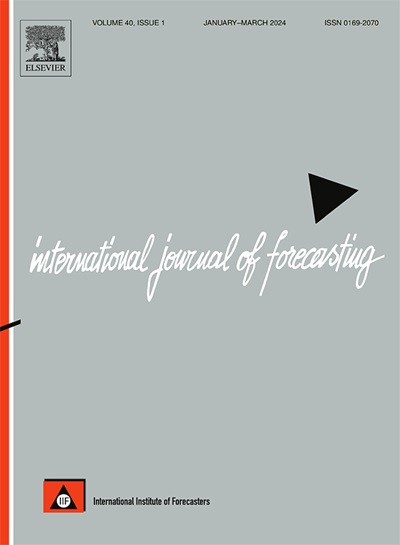Cognitive reflection, arithmetic ability and financial literacy independently predict both inflation expectations and forecast accuracy
IF 6.9
2区 经济学
Q1 ECONOMICS
引用次数: 0
Abstract
Cognitive reflection is defined as the tendency to detect and check intuitive errors and has been found to predict forecast accuracy in a range of domains. The current research demonstrates in a purpose-designed survey that a question in the Survey of Consumer Expectations serves as a test of cognitive reflection. Using this measure, I demonstrate for the first time in a time-series of inflation expectations that cognitive reflection is associated with greater forecast accuracy. I then apply this insight to interrogate the spike in inflation expectations that occurred over the year 2021. The data rule out that the spike was driven by respondents low in cognitive reflection, who are most vulnerable to overreacting to recent news. These results are insightful for the use of survey data not only in forecasting inflation but in forecasting more generally.
认知反思、算术能力和金融素养分别独立预测通胀预期和预测准确性
认知反射被定义为发现和检查直觉错误的倾向,并被发现在一系列领域预测预测的准确性。目前的研究在一项有目的的调查中表明,消费者期望调查中的一个问题可以作为认知反射的测试。使用这种方法,我首次在通胀预期的时间序列中证明,认知反射与更高的预测准确性有关。然后,我将这一见解应用于2021年出现的通胀预期飙升。这些数据排除了这种飙升是由认知反射能力较低的受访者推动的,他们最容易对最近的新闻做出过度反应。这些结果不仅对使用调查数据预测通货膨胀,而且对更广泛的预测具有深刻的意义。
本文章由计算机程序翻译,如有差异,请以英文原文为准。
求助全文
约1分钟内获得全文
求助全文
来源期刊

International Journal of Forecasting
Multiple-
CiteScore
17.10
自引率
11.40%
发文量
189
审稿时长
77 days
期刊介绍:
The International Journal of Forecasting is a leading journal in its field that publishes high quality refereed papers. It aims to bridge the gap between theory and practice, making forecasting useful and relevant for decision and policy makers. The journal places strong emphasis on empirical studies, evaluation activities, implementation research, and improving the practice of forecasting. It welcomes various points of view and encourages debate to find solutions to field-related problems. The journal is the official publication of the International Institute of Forecasters (IIF) and is indexed in Sociological Abstracts, Journal of Economic Literature, Statistical Theory and Method Abstracts, INSPEC, Current Contents, UMI Data Courier, RePEc, Academic Journal Guide, CIS, IAOR, and Social Sciences Citation Index.
 求助内容:
求助内容: 应助结果提醒方式:
应助结果提醒方式:


